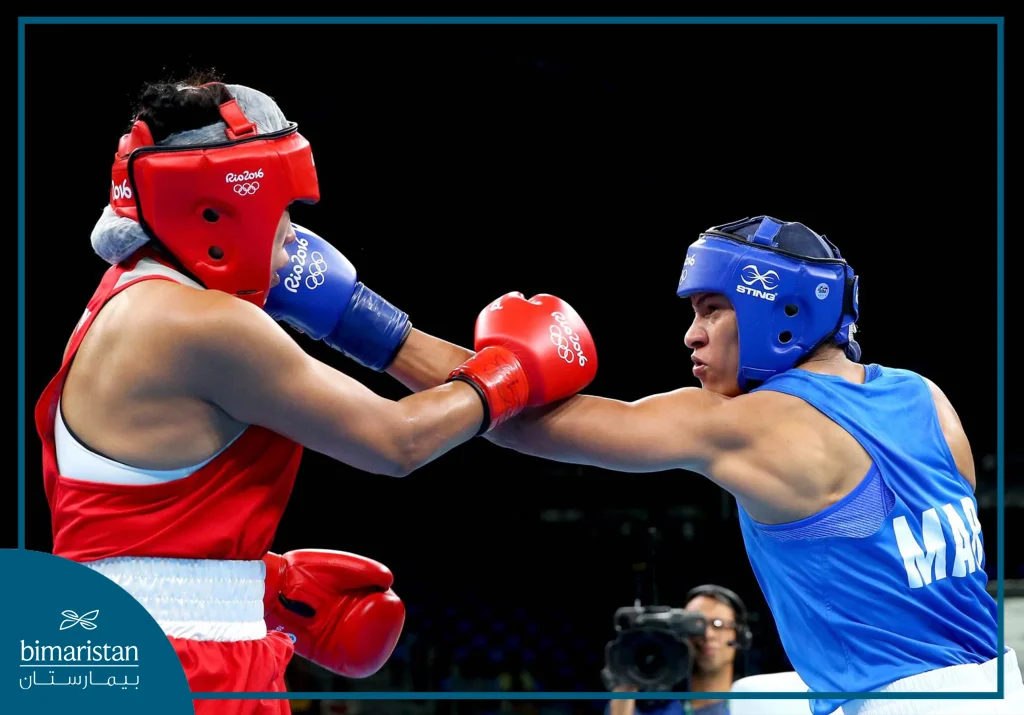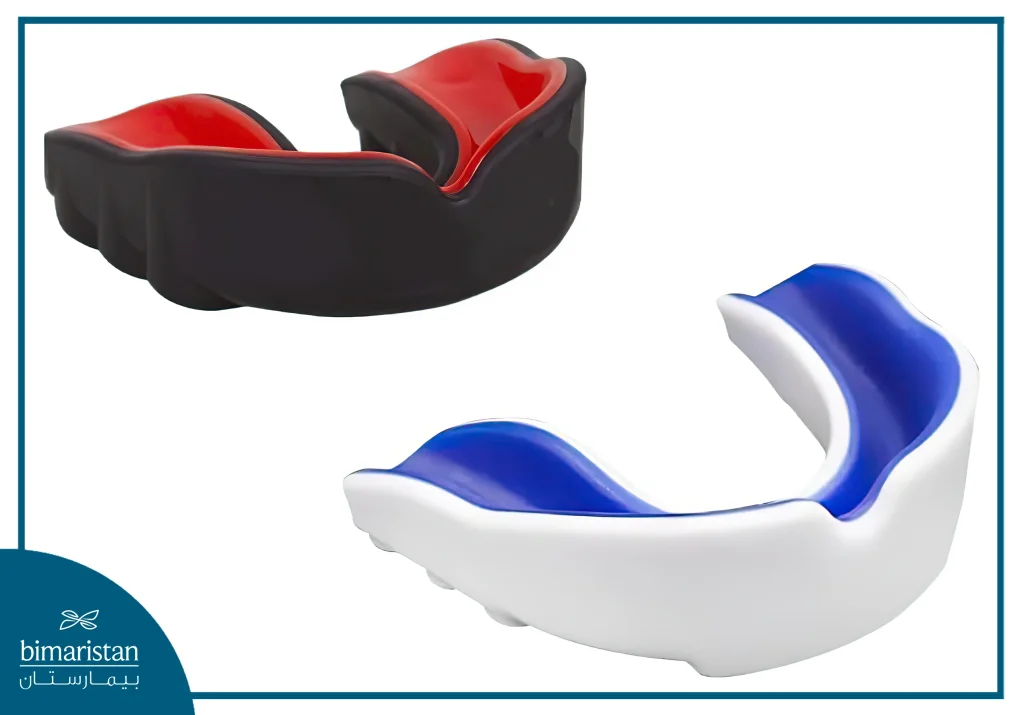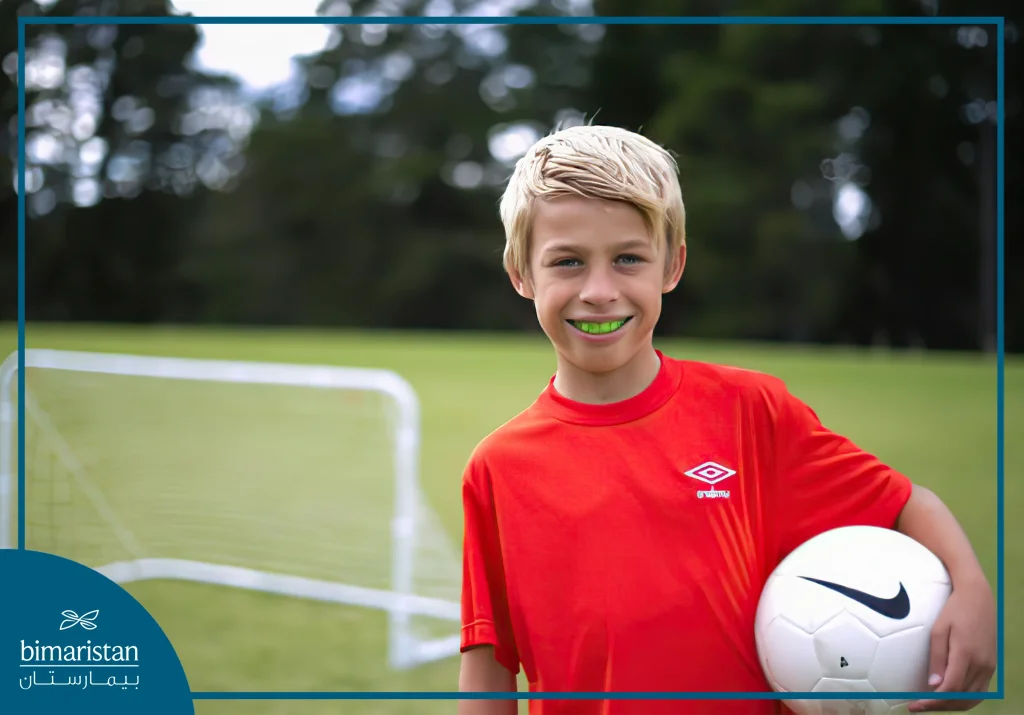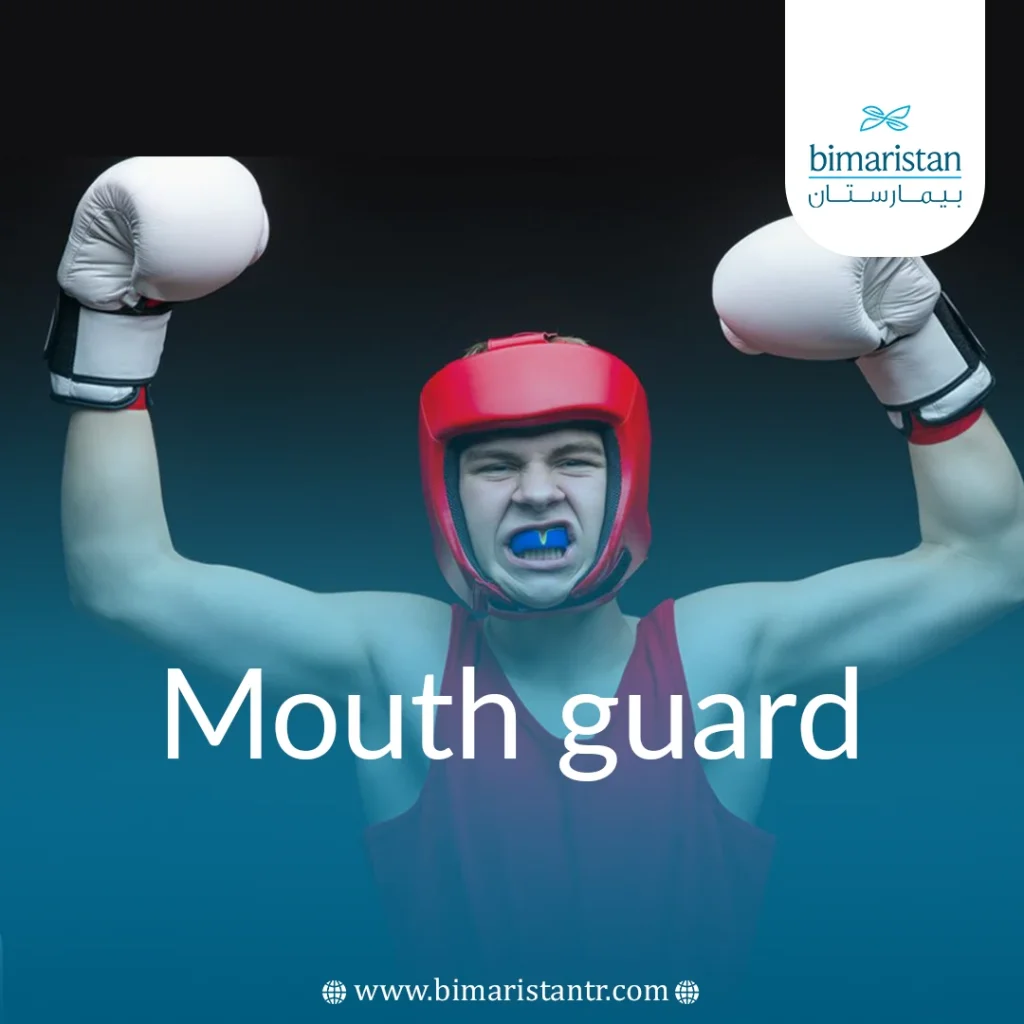A mouth guard is a device worn over your teeth to protect them from teeth grinding and injuries during sports. We will learn about its uses and types in Turkey.
Mouth guard
Imagine what it would be like if you suddenly lost one or two of your front teeth! Speaking, smiling, eating, and many other functions would suddenly be affected, so knowing how to prevent injuries to your mouth and face is especially important if you play certain sports or other activities.
Mouth guards are devices that protect your teeth from grinding or clenching during sleep or injuries during sports. They can also help reduce snoring and relieve sleep apnea, providing protection and helping you get a good night’s sleep.

A dental mouth guard reduces the risk of a blow to the face that could cause a broken tooth and injury to your lips, tongue, face, or jaw by covering the upper teeth. It also plays an important role in protecting the soft tissues of the tongue, lips, and cheek lining.
Not all mouthguards are the same, but three main types depend on your needs. Follow the article to learn about the different types available in Istanbul, including the best type for each case.
Types of mouth guards in Turkey
There are three types of mouthguards:
Pre-made dental mouthguard
It is ready to wear immediately upon purchase, inexpensive, and can be purchased at most sports stores. However, it cannot be adjusted to fit, is bulky, makes breathing and speaking difficult, and provides little or no protection. Therefore, dentists do not recommend using it.

Custom mouth guard
Made of a thermoplastic material placed in hot water to soften it and then placed in the mouth cavity to be bitten down and molded around the teeth with finger and tongue pressure, this type provides a better fit than a ready-made mouth guard.
Custom/Individual Mouth Guard
This is a custom-made mouth guard that is individually designed and made in a dental clinic or a specialized laboratory based on your dentist’s instructions. Your dentist will take an impression of your teeth to mold the mouth guard onto the model using a special material.
This custom-made mouthguard is more expensive than other types due to the special materials used and the extra time and labor required, but it provides the most comfort and protection.
What type of mouthguard should you use?
While different types of mouthguards are similar, they have very different functions. If you are unsure which type of mouth guard you need, talk to your dentist, who can make a recommendation based on your situation.
Playing Sports
Since accidents can happen during any physical activity, using a mouth guard during sports can help reduce the risk of oral injuries to your lips, tongue, and soft tissues. Mouthguards also help you avoid injuries that can cause broken or bruised teeth, nerve damage, or even tooth loss and extraction, leading to dental implants.
Dentists recommend using a mouth guard if you tend to play any of the following sports:
- Wrestling
- Football
- Baseball
- Boxing
- Basketball
- Hockey
- Ice hockey
- Gym sports
- Skiing
- Cycling
- Volleyball
In most cases, a customizable mouthguard is a good option for protection during sports. Regular mouthguards are the least expensive and may be a good option if you only need to wear them occasionally. They provide a good fit that helps them stay in place.

Teeth grinding and clenching
Teeth grinding and clenching are symptoms of bruxism, a sleep-related movement disorder that can affect people who grind their teeth. Bruxism can cause a variety of conditions and problems, including toothache, jaw and temporomandibular joint pain, and gingivitis. It can also damage and wear teeth as they rub together.
Wearing a night guard while you sleep can help keep your upper and lower teeth separated so they don’t hurt each other from the pressure of grinding or clenching.
In most cases, you’ll need a mouth guard specifically designed to treat bruxism. Other types, such as fitted ones, are difficult to keep in place and uncomfortable, which can make sleeping difficult. On the other hand, a custom-fit mouth guard offers a better fit than a fitted one but can become brittle and weak with repeated use.
If you’re unsure if you need a night guard for teeth grinding, you can always try a custom mouth guard for a few nights. If it seems to help stop the clenching damage, talk to your doctor about getting a custom one. Contact the doctors at Bimaristan Center here.
Sleep apnea
Sleep apnea is a potentially serious sleep disorder that causes a person to temporarily stop breathing during sleep, which can prevent the brain from getting enough oxygen and increase the risk of heart disease and stroke. It can also cause excessive snoring and make you feel groggy the next day.
Some people with sleep apnea use a continuous positive airway pressure (CPAP) machine to keep their airways open while they sleep, but if you only have mild sleep apnea, a custom mouth guard can provide a similar effect.
A sleep apnea mouth guard usually works by pushing the lower jaw and tongue forward, keeping the airway open. Some models also have a strap that goes around the head and chin to adjust the position of the lower jaw.
Snoring
Mouthguards can also help reduce snoring, which is caused by vibrations of the soft tissues in the upper airway. They work similarly to mouthguards for sleep apnea; both types pull the lower jaw forward to prevent the airway from being blocked and keep it open.
Is it necessary for athletes to wear a mouth guard?
When it comes to protecting your mouth, studies show that a mouth guard should be part of your basic equipment from an early age to prevent traumatic injuries during sports.
People who play high-impact sports, such as boxers, are most likely to wear a mouth guard as part of their basic equipment, as are athletes prone to tooth and tongue injuries, such as gymnasts and skiers.
Should a mouth guard cover the upper or lower teeth?
Your upper teeth take the brunt of the impact. After all, they are more visible than the lower teeth, which are slightly more protected because they are positioned further back. So generally, mouthguards only cover your upper teeth, but in some cases, such as if you wear braces or another fixed dental appliance on your lower jaw, your dentist will also make a mouth guard for your lower teeth.
Your dentist can suggest the best mouth guard for your condition. An effective mouth guard should be comfortable, durable, easy to clean, and not restrict your breathing or speech.
Mouthguards and Orthodontics
Properly fitting a mouthguard is especially important for people who wear braces. A blow to the face can damage braces or other fixed orthodontic appliances.
A mouthguard also provides a barrier between braces and cheeks or lips, which can help prevent gum and cheek injuries.
Work with your dentist or orthodontist to help you choose the right mouthguard. Although some mouthguards cover only your upper teeth, your dentist or orthodontist may suggest that you use a mouthguard on your lower teeth if you have braces.
If you have a retainer or other removable appliance, do not wear it during sports.
Replacing your mouthguard
Talk to your dentist about when it’s time to replace your mouthguard. If it shows signs of wear, damage, or fit problems, replace it right away. Teens and children may need to replace their mouthguards more often as their mouths grow and change.
Mouthguard Care Tips
It is important to clean and keep your mouthguard dry. Here are some tips for caring for your mouthguard:
- Wash it before and after each use, or brush it with toothpaste.
- Clean your mouthguard regularly in cool, soapy water and rinse it thoroughly.
- Bring your mouthguard for evaluation during regular dental checkups. Your dentist may also be able to clean it thoroughly.
- Store and transport your mouthguard in a sturdy container with holes to reduce bacterial growth.
- Do not leave your mouthguard in the sun or hot water.
- Check the fit and signs of wear and tear to see if it needs to be replaced.
Sources:
